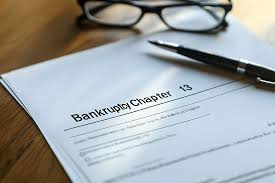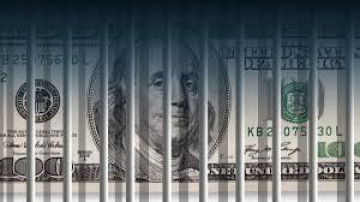Eligibility for Chapter 13 Bankruptcy with SSDI and VA Disability Benefits
Navigating the complexities of bankruptcy law can be a daunting task, especially when your primary or sole source of income is derived from Social Security Disability Insurance (SSDI) and Veterans Affairs (VA) disability benefits. Many individuals relying on these benefit programs wonder whether they qualify for Chapter 13 bankruptcy protection. This comprehensive article explores the pertinent laws, considerations, and procedures that determine eligibility, how courts treat disability benefits in payment calculations, and the critical steps to take for securing financial stability through Chapter 13 bankruptcy.
Understanding Chapter 13 Bankruptcy
Chapter 13 bankruptcy, also known as a wage earner’s plan, enables debtors with regular income to develop a plan to repay all or part of their debts over a period of three to five years. Unlike Chapter 7 bankruptcy, which involves liquidation of assets, Chapter 13 allows debtors to keep their property and catch up on missed payments through manageable installments.
For individuals whose income stems primarily from SSDI and VA disability benefits, Chapter 13 presents both opportunities and challenges, given the special treatment of these benefits under bankruptcy law.
The Nature of SSDI and VA Disability Benefits
Social Security Disability Insurance (SSDI) and Veterans Affairs (VA) disability benefits are payments made to individuals who are unable to work due to disability. SSDI is funded through payroll taxes and administered by the Social Security Administration, while VA disability benefits are provided to eligible veterans by the Department of Veterans Affairs.
Both these benefits are considered stable, reliable sources of income because they are issued monthly and based on statutory entitlements rather than employment. This stability plays a crucial role in qualifying for Chapter 13 bankruptcy.
Are SSDI and VA Disability Benefits Exempt from Creditors?
Under the U.S. Bankruptcy Code and federal law, certain types of income are protected and exempt from creditors. SSDI and VA disability benefits generally qualify as exempt income. This means that creditors cannot garnish or seize those benefits directly to satisfy debts.
However, being exempt from creditor claims does not mean these benefits are excluded from bankruptcy calculations. The bankruptcy court considers them when determining your disposable income — the amount of money available to make payments under a Chapter 13 repayment plan.
Disposable Income and Its Role in Chapter 13 Payment Plans
The feasibility of a Chapter 13 repayment plan is largely determined by your disposable income. Disposable income is the amount left after subtracting reasonably necessary living expenses from your monthly income.
In cases where your income comes solely from SSDI or VA disability benefits, the court will evaluate whether that amount can cover your essential living costs while also making plan payments. Because these benefits are generally steady and predictable, they provide a foundation for structured payments over the standard three- to five-year plan duration.
Key Factors Determining Eligibility for Chapter 13 Bankruptcy
Several factors are crucial in evaluating eligibility to file Chapter 13 bankruptcy when household income consists exclusively of disability benefits:
- Amount of Monthly Benefits — The total monthly SSDI and/or VA disability benefits must be sufficient to cover both your necessary living expenses and the proposed repayment amounts under the plan.
- Reasonable Living Expenses — Courts use standard expense allowances but also consider actual costs for necessities like housing, utilities, food, healthcare, and transportation.
- Debt Amount and Types — Chapter 13 is better suited for individuals with regular income who have enough disposable income to pay creditors over time. The nature and amount of debt influence the structuring of the plan.
- Good Faith Filing — Bankruptcy filings must be made in good faith with honest disclosures; misuse of benefits or fraudulent claims can result in denial.
How the Court Uses Disability Benefits to Calculate Payments
The bankruptcy trustee and court evaluate your income and expenses to determine the monthly payment you must make toward your debts during the Chapter 13 repayment period. While SSDI and VA disability benefits are exempt from being directly seized, the court views this income as available for the repayment plan.
Specifically, these benefits are included in calculating “disposable income.” If your disposable income is sufficient to cover a reasonable payment amount, the court will confirm your repayment plan. If the plan requires monthly payments that exceed what your benefits can support after living expenses, you may not qualify.
Consulting a Bankruptcy Attorney: Why It’s Essential
Given the complexity surrounding disability benefits and Chapter 13 eligibility, consulting a qualified bankruptcy attorney is highly recommended. An attorney can:
- Assess your unique financial situation and income sources.
- Determine eligibility based on current bankruptcy laws and local court practices.
- Help calculate disposable income precisely, considering applicable exemptions and allowances.
- Develop a customized Chapter 13 repayment plan that protects your assets and complies with court requirements.
- Negotiate with creditors and trustees on your behalf to secure favorable terms.
- Ensure all necessary paperwork and documentation related to SSDI and VA disability benefits are accurately filed.
Steps to Take if You Consider Filing Chapter 13 Bankruptcy
If you receive SSDI and VA disability benefits and believe Chapter 13 bankruptcy may be right for you, consider the following steps:
- Collect and organize all documentation related to your income, including award letters and recent benefit statements from the Social Security Administration and Department of Veterans Affairs.
- Document your monthly living expenses carefully and accurately.
- Research and engage a reputable bankruptcy attorney with experience handling cases involving disability income.
- Schedule a consultation to evaluate your financial status and explore your options.
- Work with your attorney to draft and file a Chapter 13 repayment plan tailored to your income and debts.
- Attend required credit counseling and debtor education courses as mandated by bankruptcy law.
- Participate in your meeting of creditors and maintain communication with your attorney throughout the process.
Common Misconceptions About Disability Benefits and Bankruptcy
There are several misunderstandings regarding how SSDI and VA disability benefits interact with bankruptcy proceedings:
- Misconception: My disability benefits income is entirely off-limits in bankruptcy calculations.
Reality: While exempt from direct seizure by creditors, they count as income when calculating your repayment ability in Chapter 13. - Misconception: Filing bankruptcy means losing my benefits.
Reality: Bankruptcy filing does not affect eligibility for SSDI or VA disability benefits, as these are protected government benefits. - Misconception: I need employment income to qualify for Chapter 13.
Reality: Regular income from benefits such as SSDI and VA disability can qualify as stable income for Chapter 13 purposes.
Benefits of Chapter 13 Bankruptcy for Disability Benefit Recipients
For individuals dependent on SSDI and VA disability benefits, Chapter 13 bankruptcy offers meaningful advantages:
- Protection from creditor harassment and lawsuits while undergoing the repayment plan.
- Opportunity to retain important assets and avoid foreclosure or repossession.
- Structured, affordable repayment schedule based on your actual ability to pay.
- Discharge of remaining unsecured debts after successful completion of the plan.
Important Legal Considerations and Updates as of 2025
Bankruptcy laws evolve, and recent updates as of 2025 reinforce protections for recipients of SSDI and VA disability benefits. Courts increasingly recognize the importance of safeguarding these benefits while ensuring debtors fulfill responsibilities within realistic means.
It is crucial to remain aware of any changes in statutory exemptions, means testing procedures, or local jurisdictional interpretations to make informed decisions and ensure compliance with current regulations.
How Our Team at Legal Marketplace CONSULTANT Can Assist You
At Legal Marketplace CONSULTANT, we specialize in providing comprehensive legal support to individuals facing financial challenges, including those relying on disability benefits. Our experienced attorneys are dedicated to guiding you through the bankruptcy process with sensitivity and expertise.
Contact us via the communication links in our bio or send a direct private message to schedule a consultation. We will help you understand your options, craft a strategic plan tailored to your financial situation, and ensure your rights and assets are protected throughout the Chapter 13 bankruptcy procedure.
Legal Marketplace CONSULTANT — a trusted legal partner focused on thorough and personalized assistance for individuals relying on SSDI and VA disability benefits, helping them navigate bankruptcy law and achieve financial stability.
Chapter 13 bankruptcy remains a viable option for individuals whose primary income consists of SSDI and VA disability benefits. These benefits, while exempt from direct seizure, factor into the calculation of disposable income, determining repayment plan eligibility and payment amounts. Through careful planning, transparent disclosure, and the guidance of experienced bankruptcy attorneys, you can protect your assets and work toward regaining financial security. If you are considering filing Chapter 13 bankruptcy and depend on disability benefits, seeking professional legal counsel is essential to navigate the complexities and achieve the best possible outcome.































